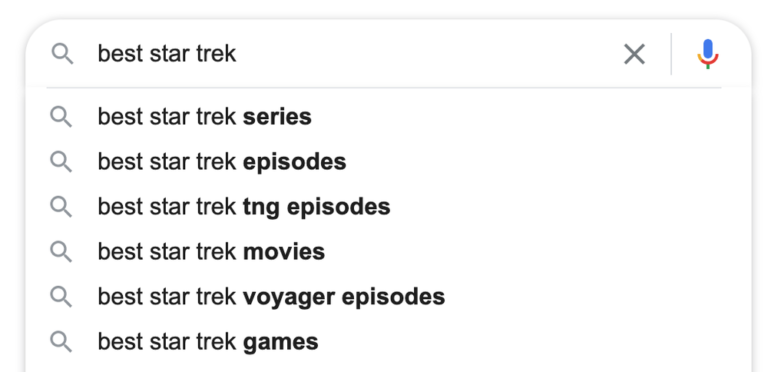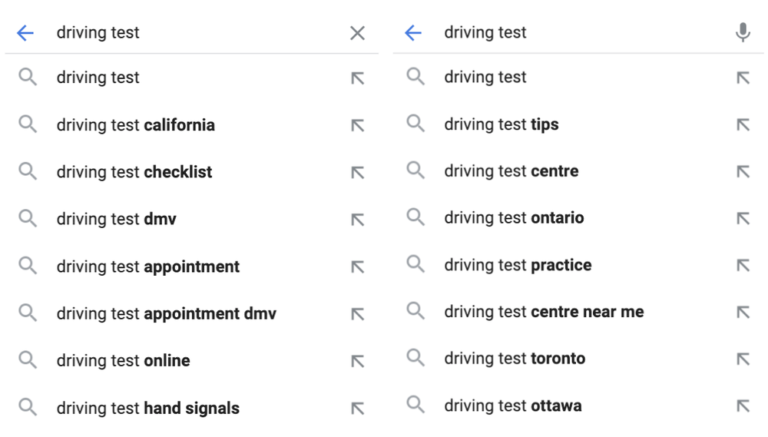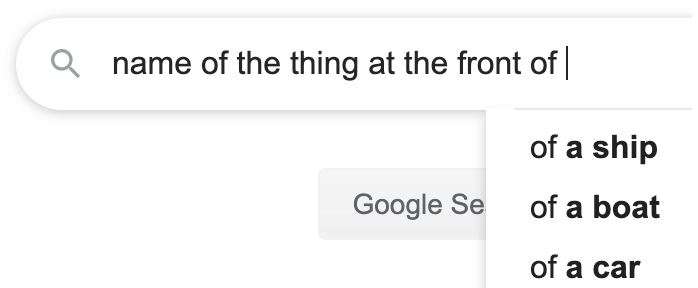Google’s Search Liaison, Danny Sullivan, explains in a new blog post how autocomplete predictions are generated.
Anyone who uses Google Search has encountered autocomplete before, as predictions begin appearing as soon as words are typed into the search bar.
Autocomplete predictions are designed to help save users’ time by getting them to the information they need even faster.
Google has previously explained how autocomplete works. This latest explainer is specifically focused on how the predictions are generated.
While autocomplete is designed to be helpful, it doesn’t always work out that way. Sullivan also touches on what Google does in situations where it’s best not to predict anything.
Autocomplete Predictions: Were Do They Come From?
Autocomplete predictions are automatically generated based on real searches that people have typed into Google.
In generating predictions, Google looks at 4 factors:
- Trending queries
- Language of the searcher
- Where the searcher is located
- Freshness
Google first considers trending queries when generating autocomplete predictions, but it won’t only suggest the most common predictions.

“That’s how predictions work at the most basic level,” Sullivan says.
In order to make predictions more relevant to the individual searcher, Google also looks at the searcher’s language and location.
In the example below you can see how predictions for “driving test” differ for a searcher in California (left) versus a searcher Ontario, Canada (right).

Long-tail queries are handled in a different way. Because the searches are less common, Google may shift from predicting a whole query to predicting parts of a query.

“For example, we might not see a lot of queries for “the name of the thing at the front” of some particular object. But we do see a lot of queries for “the front of a ship” or “the front of a boat” or “the front of a car.” That’s why we’re able to offer these predictions toward the end of what someone is typing.”
Google may prioritize freshness when generating predictions if there’s a rising interest in a particular topic.
“[our automated systems] might show a trending prediction even if it isn’t typically the most common of all related predictions that we know about.”
Subscribe for Daily Search Insights
AI, PPC, and digital marketing news distilled to fuel success. Join the other 75k marketers!
Sullivan emphasizes that autocomplete is designed to do more than suggest the most common queries. It’s different from, and should not be compared to, Google Trends.
When Autocomplete Will Not Provide Suggestions
Google has measures in place for avoiding certain types of predictions that may be unexpected, shocking, or less likely to lead to reliable content.
Google deals with these issues in two ways:
- Automatically: Systems are designed to prevent potentially unhelpful and policy-violating predictions from appearing.
- Manually: If Google’s automated systems don’t catch predictions that violate its policies, there are enforcement teams that remove predictions in accordance with those policies.
Autocomplete will not provide suggestions when it recognizes terms and phrases that might be violent, sexually-explicit, hateful, disparaging, or dangerous.
Google may also prevent autocomplete from making suggestions if it recognizes that a prediction may return unreliable content.
Autocomplete will not work for queries where the predictions can be interpreted as confirmations of unconfirmed rumors.
Users Can Still Search For Anything They Want
Sullivan concludes his explainer by stating that users are free to search for anything they want.
Google may prevent autocomplete from working in certain situations, but it will not prevent actual search results from appearing.
Source: blog.google


